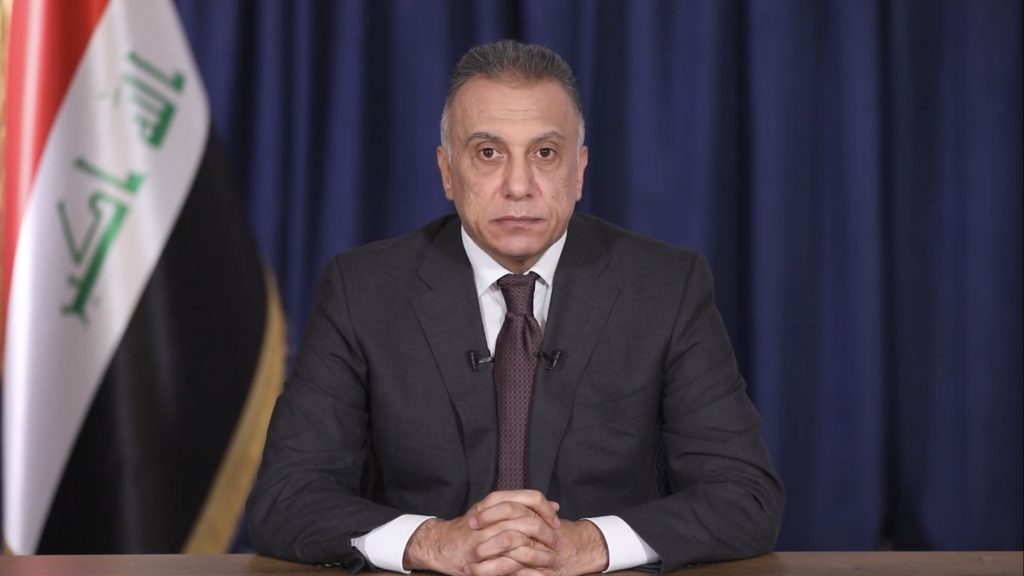Late last week, Iraqi President Barham Salih named former intelligence chief Mustafa al-Kadhimi as the country’s Prime Minister Designate (Reuters: 2020). He is the third man to hold this designation and it is yet to be seen if he can do what his predecessors could not, build enough support in Parliament to officially assume the position. Doing so before the deadline on May 9th is a difficult task, especially under today’s extraordinary conditions. Mr. al-Kadhimi must successfully traverse a political landscape defined by ethnic tensions, popular discontent, economic crisis, and the increasing threat of Coronavirus.
The search for a new Prime Minister began late last year with the resignation of Adel Abdul-Mahdi from the position in the wake of mass anti-government protests (Gathright: 2019). Protests began in October of 2019, demanding reform of the Iraqi political system set up after the 2003 US invasion of the country. Citizens have grown disillusioned with a system full of problems, including a lack of jobs, endemic corruption, and a growing Iranian influence in the country (Gathright: 2019). Promises of reform did not quell the protestors, nor has the high levels of violence against protestors. 400 people were killed in the months leading up to Abdul-Madhi’s resignation (Gathright: 2019). The pressure from protests and international forces led to Abdul-Madhi’s resignation at the end of November, which was accepted by the President despite legal questions regarding the procedure of such an event. Abdul-Madhi, however, remains the head of government in a caretaker capacity until a permanent Prime Minister is named (Reuters: 2020).
Al-Kadhimi looks to succeed where two others have failed by officially securing his position as Prime Minister. The government’s first choice for the post was Mohammed Allawi, a former Communications Minister in the Iraqi government. However, after four weeks and two Parliamentary votes, he was unable to secure the support necessary (Laessing: 2020). Protestors disapproved of his nomination, claiming he remained too connected to the old political order they sought to reform, and rival parties were able to block his confirmation (Laessing: 2020). Sunni and Kurdish groups especially opposed Allawi’s proposed Cabinet, which was strongly influenced by Shi’ite cleric Moqtada al-Sadr and which threatened their positions of power in government (Laessing: 2020).
The second choice for Prime Minister was Adnan al-Zurfi. His candidacy collapsed, like his predecessor, when a sufficiently large political bloc of political players reversed their support for him (Abdul-Zahra & Kullab: 2020). This included direct threats made by Iranian-backed militia groups against law makers if they were to support al-Zurfi’s candidacy (Ap: 2020). Shi’ite parties allegedly connected to Iran chose to support al-Kadhimi as their preferred candidate instead (BBC: 2020). This demonstrates the difficulty of building coalitions in such a highly partisan/sectarian environment. This issue is particularly problematic in Iraq, where governmental positions are allocated along ethnic and sectarian lines. This is one of the elements of the current political system that has drawn criticism from protestors, who claim it encourages patronage politics and corruption (BBC: 2020). It also creates a system in which members of these ethno-sectarian parties seek only to serve their own interests and preserve their own powers, making reform a difficult proposition.
Al-Kadhimi then faces the difficult task of building a strong enough coalition within the fragmented Iraqi government to officially claim the mantle of Prime Minister. He currently has the support of major Shi’ite parties, but it is still unclear whether his base is strong enough. There are concerns that he lacks a solid political base in parliament, which would be necessary to pass a vote (AP: 2020). Gathering support requires a delicate balance, appealing to Iraq’s various political groups in such a way to garner the necessary votes.
If he were to succeed, al-Kadhimi would a myriad of challenges as Prime Minister. First, and most obviously, there is the impact of Covid-19. At least 69 people have died of it in Iraq and there are over a thousand confirmed cases in the country (AP: 2020). Iraq, like many countries, faces a shortage of testing equipment and materials, creating a large public health crisis for a new head of state. Iraq also currently faces serious economic concerns. A side effect of the pandemic is plummeting oil prices, a major concern for an oil-dependent economy like Iraq’s (Reuters: 2020). The next head of state must also contend with continued protests in the country. While Coronavirus has dispersed the crowds for the moment, they are likely to return if their demands are not met (AP: 2020).
It is yet to be seen whether protestors believe al-Kadhimi represents a substantive enough departure for the old political order, but in the likely case they do not, he must contend with a hostile segment of the population. Demonstrations may even become more fervent if the economic conditions in the country continue to worsen. This case poses an interesting opportunity to study the relationships between unelected heads of state and their citizens. In this case, appealing to segments already within government is more important that appealing to the citizenry, as Parliament determines a candidate’s fate. This disconnect between people and leaders has sparked protests, but it is unclear what recourse protestors have to change an undesirable outcome. This is especially true in the ethno-sectarian arrangement of Iraqi politics, in which, by protestors’ own admission, parties are incentivized to protect their own positions rather than accept the popular will.
Works Cited
Abdul-Zahra, Qassim and Kullab, Samya. “Iraq Appoints Third PM-Designate, After Second Withdraws.” The Associated Press. April 9, 2020. Accessed April 12, 2020.
Gathright, Jenny. “Iraqi Parliament Accepts PM Adel Abdul-Mahdi Resignation, but Protesters Demand More.” NPR. December 1, 2020. Accessed April 14, 2020.
“Iraq Names its Third Prime Minister in 10 Weeks.” Reuters. April 9, 2020. Accessed April 12, 2020.
“Iraq Names Third PM-Designate in 10 Weeks as Deadlock Continues.” BBC. April 9, 2020. Accessed April 12, 2020.
Laessing, Ulf. “Iraqi Prime Minister Candidate Allawi Quits as Vacuum Looms.” Reuters. March 1, 2020. Accessed April 13, 2020.

